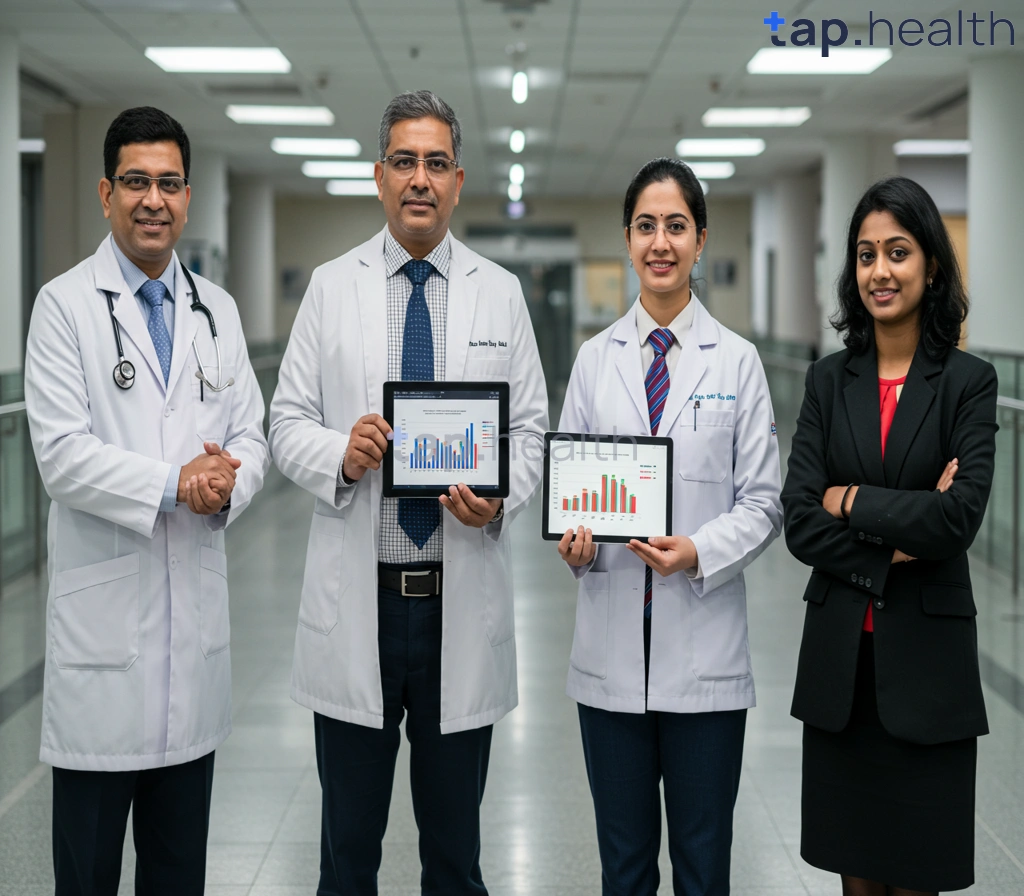Table of Contents
- Predoctoral Diabetes Research: Meet Our Students
- Digestive & Kidney Disease Research Training Program
- Diabetes, Digestive & Kidney Predoctoral Researchers
- Top Students in Diabetes & Related Disease Research
- Researching Diabetes, Digestive, and Kidney Diseases: A Student’s Journey
- Frequently Asked Questions
- References
Are you interested in the brilliant minds shaping the future of diabetes, digestive, and kidney disease research? Then you’ve come to the right place! This blog post showcases the Diabetes, Digestive & Kidney Diseases Research: Predoctoral Training Program Student Roster, highlighting the exceptional students contributing to groundbreaking advancements in these critical fields. We’ll be introducing you to the next generation of researchers who are tackling some of the most challenging health issues facing us today. Get ready to meet the dedicated individuals making a real difference in patient care and scientific discovery. Learn more about their research areas and potential contributions to the medical community.
Predoctoral Diabetes Research: Meet Our Students
The alarming rise in diabetes, particularly among youth, demands immediate attention. In the U.S., approximately 35 per 10,000 youths are diagnosed with diabetes, highlighting the urgent need for advanced research and skilled professionals. This underscores the critical importance of our Predoctoral Training Program in Diabetes, Digestive, and Kidney Diseases.
Investing in the Future of Diabetes Research
Our program cultivates the next generation of researchers focusing on diabetes and related complications, particularly relevant to the unique challenges faced in Indian and tropical countries. These regions often grapple with higher rates of diabetes and limited access to specialized care. We are proud to showcase the exceptional talent within our student roster, individuals dedicated to tackling these complex issues. Students in our program are engaged in cutting-edge research focused on various aspects of diabetes, from prevention strategies tailored to specific populations to advanced treatment options. Understanding Prediabetes Range is a crucial first step in prevention efforts.
Empowering Researchers in Indian and Tropical Countries
Our students come from diverse backgrounds and bring unique perspectives, crucial for developing culturally sensitive and effective solutions. Their research projects often address prevalent issues within their home countries, promising real-world impact on healthcare access and quality. This commitment to improving diabetes care in high-risk regions aligns with our program’s global health focus. We actively encourage applications from talented individuals in Indian and tropical countries who are passionate about tackling the diabetes epidemic. For those already diagnosed, learning how to reverse prediabetes can be incredibly impactful.
Join Our Fight Against Diabetes
Learn more about our program and the groundbreaking research being conducted by our students. Explore opportunities to collaborate and contribute to the global fight against diabetes. Consider connecting with our program to explore partnership opportunities or to support the development of future diabetes specialists.
Digestive & Kidney Disease Research Training Program
The rising prevalence of diabetes in India and tropical countries presents a significant challenge, particularly concerning its impact on kidney health. Nearly 30% of individuals with diabetes develop diabetic nephropathy, a serious complication affecting the kidneys. This underscores the urgent need for specialized training in digestive and kidney disease research within these regions. Our Predoctoral Training Program addresses this critical need directly.
Training Program Focus
The program focuses on providing advanced training to aspiring researchers in the intricate interplay between diabetes, digestive health, and kidney disease. We emphasize a multidisciplinary approach, incorporating expertise in nephrology, gastroenterology, and endocrinology. The curriculum includes hands-on research experience, utilizing the latest technologies and methodologies to investigate the pathogenesis and management of these interconnected conditions. The curriculum is specifically designed to address the unique epidemiological and clinical challenges presented by these diseases in the Indian subcontinent and other tropical regions. Understanding the importance of digestive health is crucial, and for more information on maintaining optimal kidney function, you might find our article on Kidney-Cleansing Foods for Optimal Function helpful.
Program Benefits and Opportunities
Our program offers invaluable opportunities for students to contribute to groundbreaking research with global relevance. Graduates will be equipped with the necessary skills and knowledge to address the complex health issues prevalent within Indian and tropical communities. The program fosters collaborative research partnerships both nationally and internationally, providing unparalleled exposure and networking opportunities. This will enhance career prospects and contribute to improving healthcare in these regions. For those interested in learning more about related conditions, How to Treat Inflammatory Bowel Disease offers valuable insights into digestive health challenges.
Call to Action
For dedicated and ambitious researchers committed to advancing kidney health care in India and tropical countries, we invite you to explore the Predoctoral Training Program. Learn more about our application process and available research opportunities. Make a difference in the fight against diabetic nephropathy and related diseases.
Diabetes, Digestive & Kidney Predoctoral Researchers
Diabetes, digestive, and kidney diseases disproportionately impact populations in India and tropical countries. Addressing this critical health challenge requires dedicated research, and a robust predoctoral training program is vital to cultivating the next generation of experts. Understanding the prevalence is key: 61% of all people with diabetes are aged between 20-64 years; 39% are aged 65+ years, according to the International Diabetes Federation Diabetes Atlas. This significant demographic highlights the urgent need for research focused on younger populations and the unique challenges faced by older adults in these regions.
Addressing Unique Regional Challenges
Research within this program must consider the specific epidemiological contexts of India and tropical countries. These regions often face unique challenges, such as limited access to healthcare, dietary habits contributing to increased risk, and the interplay of infectious and non-communicable diseases. Predoctoral researchers will play a crucial role in investigating these complex interactions and developing tailored interventions. This includes studying the impact of specific dietary patterns, environmental factors, and genetic predispositions prevalent in these populations. Understanding the role of gut health is also critical, and research into the use of prebiotics and probiotics for diabetes management is a promising area of investigation.
Cultivating Future Leaders in Research
The program aims to nurture future researchers equipped to tackle the complex challenges of diabetes, digestive, and kidney diseases in India and tropical countries. By providing rigorous training and mentorship, it will empower the next generation of scientists to lead groundbreaking research, contributing to improved healthcare outcomes and healthier communities. The research undertaken by these predoctoral students will be instrumental in informing public health policies and intervention strategies. Furthermore, research into the safe and effective use of dietary supplements in diabetes care could significantly impact treatment approaches.
Join the Fight Against Diabetes, Digestive, and Kidney Diseases
Are you a highly motivated student passionate about making a difference in global health? Consider applying to our predoctoral training program and contribute to vital research impacting the lives of millions in India and tropical countries. Together, we can strive for a healthier future for all.
Top Students in Diabetes & Related Disease Research
Diabetes disproportionately impacts low- and middle-income countries, with over 75% of people with diabetes residing in these regions, as highlighted by the International Diabetes Federation’s Diabetes Atlas. This underscores the critical need for robust research and skilled professionals in countries across India and the tropics. Our Predoctoral Training Program boasts a roster of exceptional students at the forefront of diabetes, digestive, and kidney disease research. These aspiring researchers are tackling critical challenges specific to these regions, including the high prevalence of type 2 diabetes linked to lifestyle changes and limited access to healthcare.
Training Program Focus
The program focuses on developing future leaders in diabetes research, equipping them with the advanced skills and knowledge to address the unique challenges present in India and tropical countries. Students are involved in projects ranging from investigating the genetic predispositions to diabetes within specific populations to developing culturally-sensitive interventions for improved diabetes management and prevention. This includes researching the impact of traditional diets and lifestyle factors on diabetes risk and exploring cost-effective strategies for early diagnosis and treatment in resource-constrained settings. Understanding the impact of diabetes can vary greatly depending on age, as highlighted in our blog on Diabetes in Teenagers: Understanding the Impact – Tap Health.
Future Leaders in Diabetes Research
Our program’s graduates are well-positioned to contribute significantly to improving diabetes care and outcomes in their respective regions. They will be equipped to lead research initiatives, implement public health programs, and advocate for policy changes to address the growing burden of diabetes and related diseases. This investment in training ensures a future generation of experts dedicated to tackling this global health crisis, specifically within the context of India and the tropical world. For those interested in learning more about dietary choices, our blog on 20 Best Foods for People with Diabetes – Tap Health offers valuable insights. We are committed to fostering this vital research and encouraging applications from highly motivated students across these regions.
Researching Diabetes, Digestive, and Kidney Diseases: A Student’s Journey
Navigating the Complexities of Metabolic Diseases in India and Tropical Climates
The intersection of diabetes, digestive health, and kidney disease presents a significant challenge, particularly in India and other tropical countries. Research in this area is crucial, given the high prevalence of these interconnected conditions. For instance, over 60% of people with diabetes in India also have hypertension, highlighting the urgent need for comprehensive research initiatives. This complex interplay requires a multidisciplinary approach, encompassing endocrinology, gastroenterology, and nephrology. Understanding the unique genetic and environmental factors contributing to these diseases in tropical climates is paramount. The link between diabetes and obesity is particularly relevant in this context, as explored further in Understanding the Link Between Diabetes and Obesity.
Predoctoral Training and Research Opportunities
A predoctoral training program focused on diabetes, digestive, and kidney diseases provides invaluable opportunities to contribute to this vital field. Students gain exposure to cutting-edge research methodologies, collaborate with leading experts, and develop skills in data analysis and interpretation. This rigorous training equips researchers with the knowledge and expertise necessary to address the complex challenges faced in India and similar regions. Research projects may focus on investigating the underlying mechanisms of disease progression, identifying novel biomarkers for early detection, or evaluating the effectiveness of new treatment strategies. The challenges faced only intensify as individuals age, a topic addressed in Managing Diabetes as You Age: Challenges and Solutions.
The Path Forward: Contributing to Regional Health
For aspiring researchers passionate about improving health outcomes in India and other tropical nations, focusing on diabetes, digestive, and kidney disease research offers a fulfilling and impactful career path. The pressing need for innovative solutions, coupled with the significant challenges inherent in these interconnected diseases, presents fertile ground for groundbreaking discoveries. Consider pursuing research opportunities in this critical area to contribute significantly to global health. Your dedication can make a tangible difference in the lives of countless individuals.
Frequently Asked Questions on Diabetes Research Programs
Q1. What is the focus of the Predoctoral Training Program in Diabetes, Digestive, and Kidney Diseases?
The program focuses on training the next generation of researchers to address the high prevalence of diabetes, digestive, and kidney diseases in India and tropical countries. It emphasizes a multidisciplinary approach, incorporating expertise in nephrology, gastroenterology, and endocrinology, and utilizes the latest technologies and methodologies to investigate the pathogenesis and management of these interconnected conditions.
Q2. What are the benefits of participating in this Predoctoral Training Program?
Participants gain advanced training, hands-on research experience, and opportunities to collaborate with leading experts nationally and internationally. Graduates will be equipped with the skills and knowledge to address complex health issues in India and tropical communities, enhancing their career prospects and contributing to improved healthcare in these regions.
Q3. What are some of the key research areas addressed by the program?
Research areas include investigating the genetic and environmental factors contributing to these diseases in tropical climates, developing culturally-sensitive interventions for improved diabetes management and prevention, exploring cost-effective strategies for early diagnosis and treatment in resource-constrained settings, and studying the impact of traditional diets and lifestyle factors on diabetes risk.
Q4. Who is encouraged to apply for this program?
The program actively encourages applications from talented individuals in India and tropical countries who are passionate about tackling the diabetes epidemic and related digestive and kidney diseases. Highly motivated students committed to improving global health are especially encouraged to apply.
Q5. How does the program address the unique challenges of diabetes in India and tropical countries?
The program directly addresses the unique epidemiological and clinical challenges presented by these diseases in India and other tropical regions by focusing research on the specific contexts of these areas, considering factors like limited healthcare access, dietary habits, and the interplay of infectious and non-communicable diseases. Research projects are tailored to these specific challenges.
References
- Electronic Health Records-Based Data-Driven Diabetes Knowledge Unveiling and Risk Prognosis : https://arxiv.org/pdf/2412.03961
- A Practical Guide to Integrated Type 2 Diabetes Care: https://www.hse.ie/eng/services/list/2/primarycare/east-coast-diabetes-service/management-of-type-2-diabetes/diabetes-and-pregnancy/icgp-guide-to-integrated-type-2.pdf



